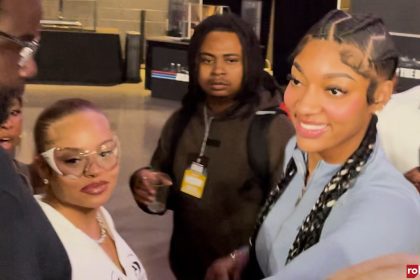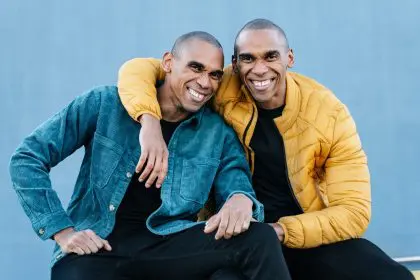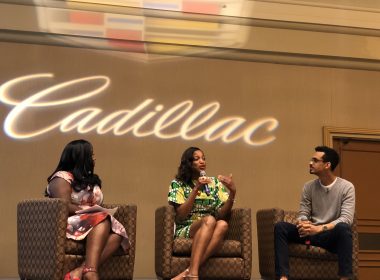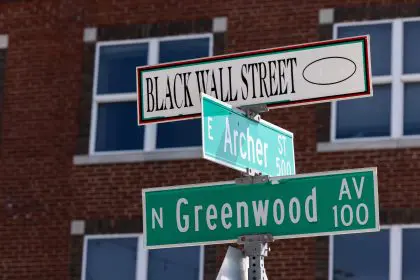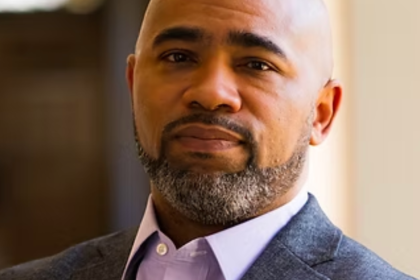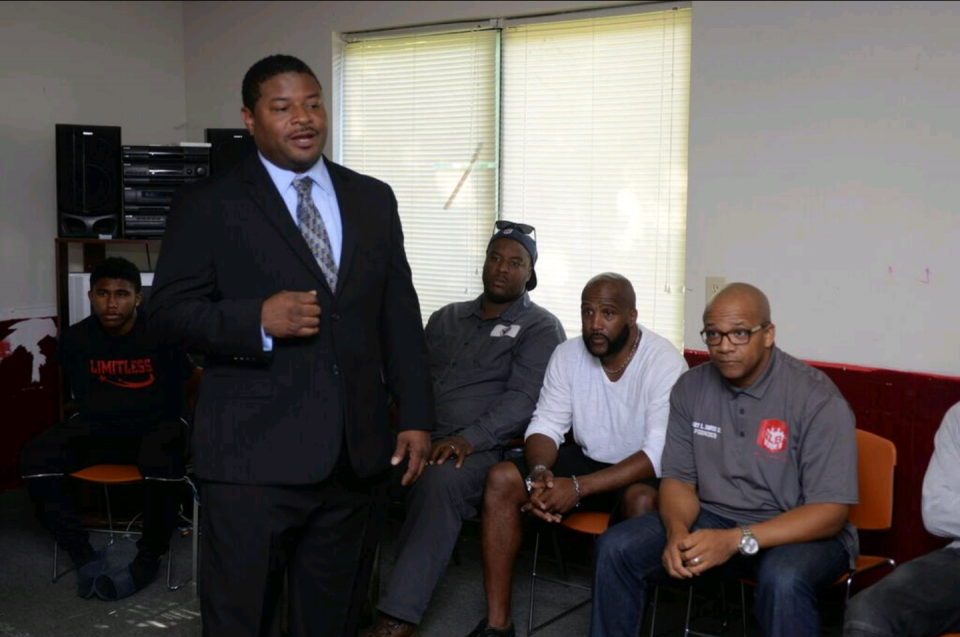
From his work with the youth through the Hardnett Foundation to his involvement with numerous business and civic organizations, Harold M. Hardnett is inextricably intertwined within the cultural fabric of southwest Atlanta. You’d be hard-pressed to find a greater advocate — and defender — of this burgeoning region.
Even as a student at Frederick Douglass High School, and through his matriculation from Morris Brown College at the famed Atlanta University Center, Hardnett knew he would invest himself in the fate of his neighborhood in his native hometown.
Hardnett is involved in the NPU-R, Campbellton Road Business and Merchants Association, Southwest Atlanta Business Alliance, Atlanta Citizen Review Board, and Atlanta Planning Advisory Board. He has either served as a long-term member or an officer of these various groups.
“I truly love this community, and when something happens to anyone, I take it personally. From victims of crime to a business owner trying to look at ways to keep their doors open, I take it all in and work on solutions,” he said. “Our community is an active and engaged one where people have pride, long-standing roots, and want to look at how to make it better. We chose to live here. We are not forced to live here.”
Hardnett’s love for southwest Atlanta began at an early age.
“I saw many first-run movies at Greenbriar and Westgate. I ate many family dinners at now-defunct restaurants along Campbellton Road and taken dates to various south side destinations,” he recalled. “As a student in high school and college, I knew I wanted to be part of the evolution of southwest Atlanta.”
Hardnett was recently appointed the Zone 4 Community Liasion with the Atlanta Police Department and attends community meetings, business association meetings and civic meetups listening to concerns about public safety and other issues.
“I have helped plan cleanups, coordinated transportation for other leaders who needed to get things done, given my own money to the coffers of many groups and opened my Rolodex to aid the causes,” he said. “There are times I was publicly given credit and other times I just worked behind the scenes as it needed to be done. Resolution is way more important than who gets credit.”
As the father of a college student, Hardnett understands what it takes to motivate, enlighten and transform young people. When mentoring adolescents, he operates on the premise that “young people cannot be what they do not see” when looking at their quality of life issues. He has mentored and worked with groups such as the 100 Black Men of Atlanta-South Metro and United Way Black American Partnership Board.
“Youth judge us by our works, not by our lectures and sermons to them. If we want to be better, then it starts with us as the adults,” he said. “Case in point, if a child has never been exposed to environments where academic achievement and entrepreneurship is encouraged, then how can they consider that as an option? We have to reinvest in our community schools, and that truly takes the entire village whether one has children or not.”
Hardnett believes in the power of college education for those who truly want to go. The Hardnett Foundation has awarded several students from southwest Atlanta scholarship money to aid in their pursuit of higher education. The event provides not only a scholarship, but Hardnett keeps in touch with students he has helped.
“Freshmen year is the toughest year of college as it’s a transition year for a young adult who is entering adulthood. I recognize that not everything one wants to tell their parents, so I serve as that listening ear from the perspective of been there, done that,” he explained. “While our scholarships may not cover the entire costs, the recipients are appreciative for the support as there are many expenses when going to college.”
The foundation is in the fifth year of operation and also works with gang members in the community and those who are awaiting trial, jailed or on probation. Hardnett has even gotten some who are in jail and probation are used to scare others straight and warn them of the consequences of wayward living.
“We use this as a chance to find out what went wrong with them so we can develop solutions for younger kids and also some of these youth will get probation or a light sentence, so we look at ways of how they can be rehabilitated,” he explained. “We had a few who admitted they were considering joining a gang and then saw what these youth are facing which turned them around. You may not save everyone but a few lives saved is better than none.”
Hardnett is the founder of Hardnett Enterprises, a company that provides housing for low-income residents, operates vending machines across the metro area and provides commercial cleaning solutions. The firm has provided job opportunities for many residents and veterans. The business was started while he was a student in college, which gives him the authority to lead and aid entrepreneurs.
“Each generation of new startups are different, we didn’t have the technological resources when I started, so it was a ton of footwork. Going into business for yourself is probably the hardest thing beyond becoming a parent that anyone can do,” he said. “It takes persistence, networking, constantly keeping up with changes and remaining competitive. I often am asked to speak to new startups at the business association meetings I attend, and I love telling them things I wish I had known back then.”
Hardnett while an active champion for southwest Atlanta also recognizes that advocacy has to transcend neighborhood lines. He joined Fulton County Commissioner Marvin Arrington’s Constituent Services Task Force in 2015 to aid in this endeavor. The task force consists of members from across Commission District 5 from East Atlanta, East Point, South Fulton, South Atlanta, portions of College Park and Union City.
“Sitting in those meetings, I immediately recognized that many people from the city to the suburban areas shared the same issues and it was a good time for us to share intelligence and best practices,” he said. “One cannot want a better community at the expense of someone else’s. We all must coexist and not be afraid to support each other economies.”

